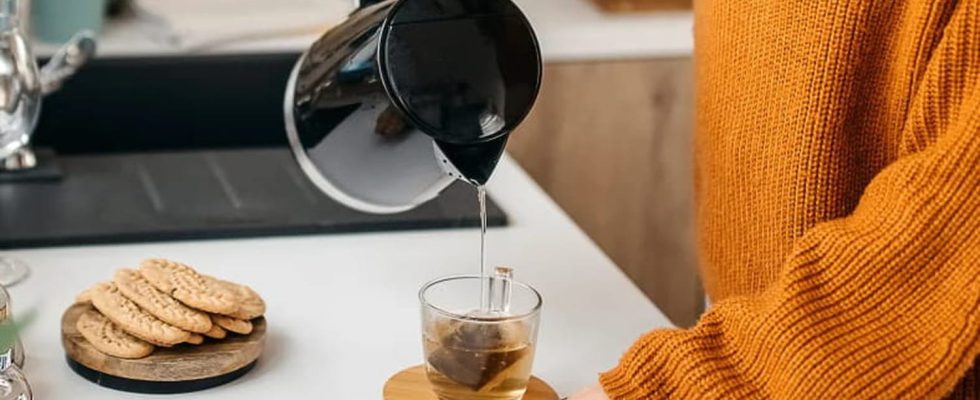Just press the button and your cup of tea is ready shortly after. But what to do with the remaining water in the kettle? Can we reuse this water or is it healthier to throw it away? We take stock.
Overall, we can say that tap water in France is of good quality. The water is so clean that anyone can drink it without worry. You can therefore keep water, boiled or not, for three days at room temperature, and three to seven days in the refrigerator. However, in this French safe water there is a small amount of heavy metals which, in high concentrations, can be harmful to the body. With each kettle heating session, some of the water evaporates, which relatively increases the amount of toxic substances remaining.
But don’t panic: it doesn’t make any difference if you boil the water several times. Heavy metals like arsenic and nitrate remain well below French health standards. Our water is really safe, even if you boil it several times. But read the kettle’s instructions carefully to learn how to use it safely. For example, some instructions indicate that you should throw away the boiled water the first few times you use the kettle, and therefore not drink it. Additionally, the appliance should only be used to boil water. The instructions may also state that you should not reboil the water and always use fresh water.
However, it is true that you are more likely to get scale if you keep water in the kettle. This leads to the deposition of calcium and magnesium. It is not harmful to drink it but the white scale would mainly have an impact on the lifespan of the device. So use your common sense: do not keep the remaining water in the kettle for too long and descale it from time to time.
If you choose to reuse the water, there is usually no risk of harmful bacteria, as they are killed each time the water is boiled. In principle, you can therefore reuse the water several times. Unless specifically advised against in the instructions for use. Finally, know that you can recognize spoiled water by looking at it carefully, smelling it and tasting it.
